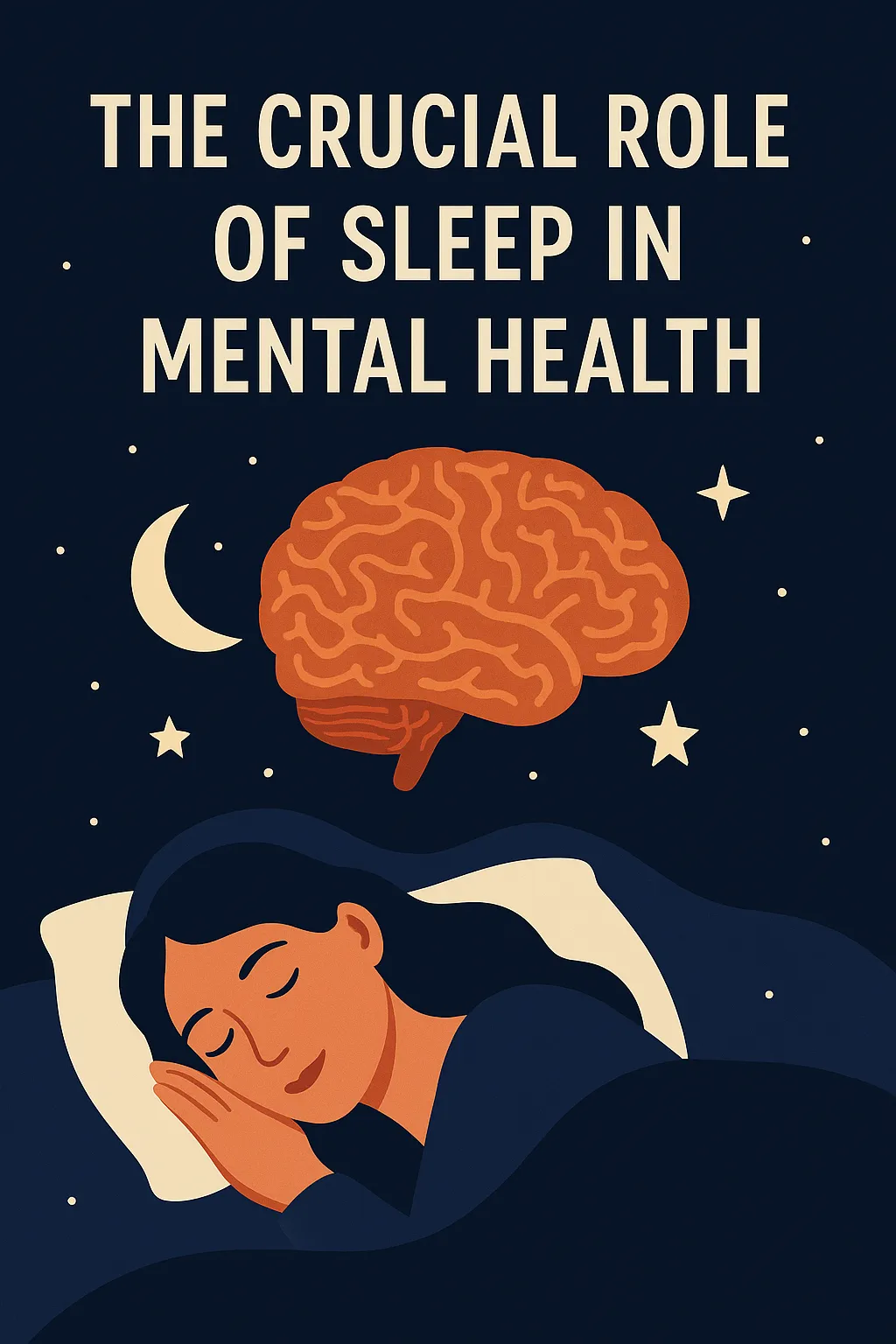
Sleep and the Mind: How Rest Shapes Our Emotional and Cognitive Health
In today’s achievement-driven culture, where productivity is glorified and late nights are romanticized, sleep is often treated as optional. Yet, from a psychological standpoint, nothing could be further from the truth. Sleep is not passive downtime; it is an active, biological necessity that plays a profound role in emotional regulation, memory formation, mental clarity, and overall psychological resilience.
When we neglect sleep, we don’t just feel tired — we compromise the very foundation of our mental health.
The Science Behind Sleep and Emotional Regulation
Have you ever noticed how even minor frustrations feel overwhelming after a sleepless night? There’s a reason for that.
Emotional regulation — the ability to manage our feelings in a flexible and adaptive way — is heavily dependent on healthy sleep. Neuroimaging studies have shown that sleep deprivation amplifies activity in the amygdala, the part of the brain associated with fear, anger, and emotional reactivity. Without the restorative effects of sleep, the amygdala becomes hyperactive while communication with the prefrontal cortex, our rational thinking center, weakens.
This creates a perfect storm: emotions feel bigger, rational control feels weaker. As a result, people become more impulsive, reactive, and vulnerable to stress.
One influential study conducted by researchers at UC Berkeley found that sleep deprivation can increase emotional volatility by up to 60%. Participants who were deprived of sleep showed heightened emotional responses to neutral or mildly stressful stimuli, suggesting that lack of sleep not only magnifies negative emotions but can distort the way we perceive the world around us.
In short, poor sleep doesn’t just make us tired — it makes us more emotionally fragile.
Sleep’s Role in Memory and Cognitive Function
Beyond emotions, sleep is also essential for cognitive functioning — particularly memory. Throughout the day, our brains take in a massive amount of information. Sleep acts like a “file transfer system,” sorting and consolidating these experiences into long-term memory.
During slow-wave sleep (deep sleep), the brain consolidates declarative memories — facts and information we consciously know. During REM sleep (the stage associated with vivid dreaming), emotional memories are processed and integrated. Without sufficient time in these crucial sleep stages, new learning becomes shaky, and emotional memories can remain raw and unprocessed.
Chronic sleep deprivation impairs attention, reduces problem-solving ability, and slows reaction times. Over time, this cognitive dullness can contribute to feelings of incompetence and low self-esteem, which in turn fuel anxiety and depression.
It’s not an exaggeration to say: sleep is the architect of memory, learning, and adaptive thinking.
The Vicious Cycle: How Poor Sleep and Anxiety Feed Each Other
Here’s where it gets even more complex: sleep deprivation doesn’t just cause anxiety — it also feeds anxiety.
When you don’t sleep well, your stress hormones, particularly cortisol, stay elevated. This constant state of “fight or flight” not only makes it harder to relax at night but can also lead to racing thoughts, physical tension, and a heightened perception of threat — all classic symptoms of anxiety.
Worse, people often become anxious about not sleeping, creating a self-fulfilling prophecy: “I have to fall asleep now or I’ll be exhausted tomorrow” — cue anxiety — cue more trouble falling asleep.
Breaking this cycle often requires conscious intervention, not just hoping for a better night.
The Impact on Mental Health Disorders
It’s no surprise that nearly every major psychiatric disorder involves some disruption of sleep.
• Depression: Around 75% of people with depression report insomnia or hypersomnia (excessive sleep).
• Anxiety Disorders: Sleep problems are so tightly linked with anxiety that sleep disturbance is now a diagnostic criterion for Generalized Anxiety Disorder (GAD).
• Bipolar Disorder: Sleep disruption can both predict and precipitate manic and depressive episodes.
• PTSD: Nightmares, insomnia, and fragmented sleep are hallmark symptoms of post-traumatic stress.
In many cases, improving sleep quality can significantly reduce psychological symptoms — sometimes even before other treatments take full effect. Sleep is often a first-line target in cognitive-behavioral therapy protocols for depression, anxiety, and trauma recovery.
Practical Strategies for Protecting Your Sleep
Understanding the importance of sleep is only the first step. The real challenge lies in making behavioral changes that support consistent, high-quality rest.
Here are evidence-based strategies:
• Establish a consistent sleep schedule — going to bed and waking up at the same time every day, even on weekends, strengthens the body’s internal clock.
• Create a wind-down routine — activities like reading, gentle stretching, or mindfulness meditation can help signal to your brain that it’s time to rest.
• Limit screen exposure — blue light from devices can suppress melatonin production and delay sleep onset.
• Manage stress during the day — techniques like journaling, therapy, exercise, and deep breathing help prevent nighttime rumination.
• Reframe sleep anxiety — instead of pressuring yourself to “try” to sleep, focus on creating a restful environment and trusting your body’s natural rhythms.
Sometimes, persistent sleep problems require professional support. Cognitive Behavioral Therapy for Insomnia (CBT-I) is a highly effective, non-pharmacological approach that addresses both the thoughts and behaviors that interfere with healthy sleep.
Final Thoughts: Sleep as Self-Compassion
Prioritizing sleep is not indulgent. It’s a radical act of self-care and emotional resilience.
In a world that constantly demands more, giving yourself permission to rest — to truly, deeply rest — is an act of honoring your mind, your body, and your future self.
Good sleep is not just about feeling better. It’s about being better: thinking more clearly, feeling more balanced, connecting more authentically with others, and living life with more vitality.
Your mind works tirelessly for you every day.
Let sleep be your way of giving it the restoration it deserves.
